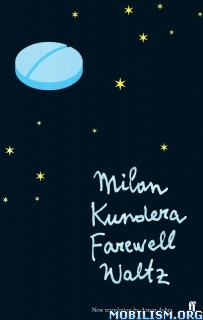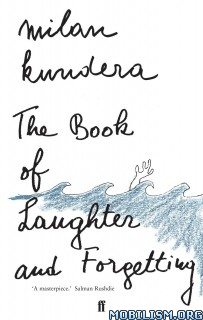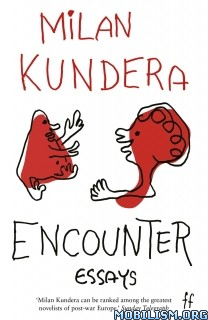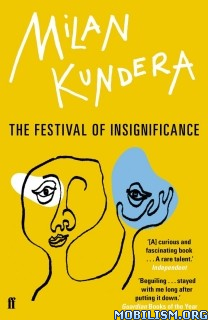4 Books by Milan Kundera
Requirements: .ePUB readers, 1.1 MB | Retail
Overview: Milan Kundera is a Czech and French writer of Czech origin who has lived in exile in France since 1975, where he became a naturalized citizen in 1981. He is best known as the author of The Unbearable Lightness of Being, The Book of Laughter and Forgetting, and The Joke.
Kundera has written in both Czech and French. He revises the French translations of all his books; these therefore are not considered translations but original works.
Due to censorship by the Communist government of Czechoslovakia, his books were banned from his native country, and that remained the case until the downfall of this government in the Velvet Revolution in 1989.
Genre: Fiction > General/Classics



Farewell Waltz (1971)
Klima, a celebrated jazz trumpeter, receives a phone call announcing that a young nurse with whom he spent a brief night at a fertility spa is pregnant. She has decided he is the father.
And so begins a comedy in which, during five madcap days, events unfold with ever-increasing speed. Klima’s beautiful, jealous wife; the nurse’s equally jealous boyfriend; a fanatical gynecologist; a rich American, at once Don Juan and saint; and an elderly political prisoner who, just before his emigration, is holding a farewell party at the spa, are all drawn into this black comedy, as in A Midsummer Night’s Dream.
As usual, Milan Kundera poses serious questions with a blasphemous lightness which makes us understand that the modern world has taken away our right to tragedy.
The Book of Laughter and Forgetting (1980)
Rich in its stories, characters, and imaginative range, The Book of Laughter and Forgetting is the novel that brought Milan Kundera his first big international success in the late 1970’s. Like all his work, it is valuable for far more than just its historical implications. In seven wonderfully integrated parts, different aspects of human existence are magnified and reduced, reordered and emphasized, newly examined, analyzed and experienced.
Encounter (2010)
A brilliant new contribution to Kundera’s ongoing reflections on art and artists, written with unparalleled insight, authority, and range of reference and allusion
Milan Kundera’s new collection of essays is a passionate defense of art in an era that, he argues, no longer values art or beauty. With the same dazzling mix of emotion and idea that characterizes his novels, Kundera revisits the artists who remain important to him and whose works help us better understand the world we live in and what it means to be human. An astute reader of fiction, Kundera brings his extraordinary critical gifts to bear on the paintings of Francis Bacon, the music of Leos Janacek, and the films of Federico Fellini, as well as the novels of Philip Roth, Fyodor Dostoyevsky, and Gabriel Garcia Marquez, among others. He also takes up the challenge of restoring to its rightful place the work of Anatole France and Curzio Malaparte, major writers who have fallen into obscurity.
Milan Kundera’s signature themes of memory and forgetting, the experience of exile, and the championing of modernist art are here, along with more personal reflections and stories. Encounter is a work of great humanism. Art is what we possess in the face of evil and the darker side of human nature. Elegant, startlingly original, and provocative, Encounter follows in the footsteps of Kundera’s earlier essay collections, The Art of the Novel, Testaments Betrayed, and The Curtain.
The Festival of Insignificance (2015)
Casting light on the most serious of problems and at the same time saying not one serious sentence; being fascinated by the reality of the contemporary world and at the same time completely avoiding realism – that’s The Festival of Insignificance. Listeners who know Kundera’s earlier books know that the wish to incorporate an element of the "unserious" in a novel is not at all unexpected of him.
In Immortality, Goethe and Hemingway stroll through several chapters together, talking and laughing. And in Slowness, Vera, the author’s wife, says to her husband, ‘You’ve often told me you meant to write a book one day that would have not a single serious word in it…. I warn you, watch out. Your enemies are lying in wait.’
Now, far from watching out, Kundera is finally and fully realizing his old aesthetic dream in this novel that we could easily view as a summation of his whole work. A strange sort of summation. Strange sort of epilogue. Strange sort of laughter, inspired by our time, which is comical because it has lost all sense of humor. What more can we say? Nothing. Just read.
Download Instructions:
https://ouo.io/q1Z64S
https://ouo.io/tNwOnB


